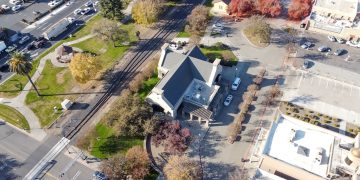
The rise of remote work has been one of the most significant economic and social shifts of the 21st century. Accelerated by the COVID-19 pandemic, remote work has redefined traditional notions of work and reshaped both urban and rural economies. This essay explores how remote work is transforming these economies, examining its impact on business practices, labor markets, real estate, infrastructure, and community dynamics. It also discusses the challenges and opportunities that come with this transformation and provides insights into future trends.
The Emergence of Remote Work
Historical Context: Remote work has existed in various forms for decades, but its widespread adoption accelerated during the COVID-19 pandemic. Prior to the pandemic, remote work was often seen as a privilege or a niche option for certain professions. However, the necessity of social distancing and lockdowns forced businesses to adapt quickly to remote work models.
Technological Advancements: The proliferation of digital technologies has made remote work feasible and effective. Tools such as video conferencing, project management software, and cloud computing have enabled employees to work from virtually anywhere. The increasing availability of high-speed internet and mobile connectivity has further facilitated remote work.
Changing Attitudes: Attitudes toward remote work have evolved over time. Initially met with skepticism, remote work is now increasingly seen as a viable and often preferable option for many employees. The pandemic demonstrated that many jobs can be performed remotely without sacrificing productivity.
Impact on Urban Economies
Commercial Real Estate: The shift to remote work has had a profound impact on commercial real estate in urban areas. With fewer employees commuting to offices, demand for office space has declined. Many companies have reduced their office footprints or adopted hybrid work models, leading to increased vacancies and a rethinking of office space usage.
Transportation and Infrastructure: Reduced commuting has led to decreased congestion and pollution in urban areas. The decline in traffic has eased pressure on transportation infrastructure and contributed to environmental benefits. However, it also poses challenges for public transit systems that rely on commuter traffic for revenue.
Local Businesses: Urban businesses that cater to office workers, such as coffee shops, dry cleaners, and lunch spots, have experienced declines in revenue. These businesses have had to adapt by diversifying their services or pivoting to new customer bases. Conversely, remote work has increased demand for home delivery services and online shopping.
Economic Disparities: The shift to remote work has highlighted economic disparities within cities. While some individuals can work remotely and benefit from increased flexibility, others who cannot work remotely may face economic hardships. This disparity underscores the need for policies that support all workers and businesses.
Impact on Rural Economies
Population Growth and Migration: Remote work has contributed to population growth in rural areas as individuals and families seek more affordable living options and improved quality of life. The flexibility of remote work allows people to live in areas with lower cost of living while maintaining their jobs with urban employers.
Economic Diversification: Rural economies are benefiting from the influx of remote workers who bring new economic activities and investments. This migration can stimulate local economies by increasing demand for housing, services, and recreational activities. Rural areas are also experiencing a rise in entrepreneurial activities as new residents start businesses.
Infrastructure and Connectivity: The expansion of remote work in rural areas has highlighted the need for improved infrastructure and connectivity. Reliable high-speed internet is essential for remote work, and many rural areas are investing in broadband expansion to support this demand. Improving infrastructure can also enhance overall quality of life in rural communities.
Challenges and Opportunities: While remote work presents opportunities for rural development, it also poses challenges. Rural areas may face issues related to access to healthcare, education, and other essential services. Addressing these challenges requires coordinated efforts between government, businesses, and community organizations.
Transforming Business Practices
Workplace Flexibility: Remote work has prompted businesses to rethink traditional workplace models. Companies are increasingly adopting hybrid work arrangements, allowing employees to split their time between remote and in-office work. This flexibility can enhance employee satisfaction and productivity.
Talent Acquisition and Retention: Remote work has broadened the talent pool for businesses by allowing them to hire employees from diverse geographic locations. This has led to increased competition for skilled workers and has prompted companies to offer competitive compensation packages and benefits.
Operational Efficiency: Remote work has driven businesses to adopt new technologies and streamline operations. Companies have invested in digital tools and platforms to support remote collaboration and communication. This shift has also led to a reevaluation of business processes and a focus on efficiency.
Corporate Culture: Building and maintaining corporate culture in a remote environment presents challenges. Companies are developing new strategies for fostering team cohesion, employee engagement, and organizational culture. Virtual team-building activities and regular communication are essential for sustaining a positive work environment.
Real Estate and Housing Market Implications
Residential Real Estate: The demand for residential properties in suburban and rural areas has increased as remote workers seek larger homes with dedicated office spaces. This trend has led to rising property values and a competitive housing market in these areas.
Urban vs. Suburban Dynamics: Urban real estate markets are experiencing shifts as individuals and families move to suburban and rural areas. This trend may lead to changes in urban real estate values and investment strategies, as well as a potential realignment of development priorities.
Commercial Real Estate Adaptations: The commercial real estate sector is adapting to changes in demand by repurposing office spaces and exploring alternative uses. Concepts such as coworking spaces and flexible office arrangements are gaining traction as businesses adjust to new work models.
Policy Implications and Recommendations
Support for Remote Workers: Governments and policymakers can support remote workers by implementing policies that promote access to high-speed internet, provide tax incentives for remote work-related expenses, and offer training and resources for remote work skills.
Infrastructure Investment: Investing in infrastructure improvements, particularly in rural areas, is crucial for supporting remote work and economic development. Enhanced broadband connectivity and transportation infrastructure can contribute to more balanced economic growth.
Economic Diversification: To ensure long-term economic stability, both urban and rural areas should focus on diversifying their economies. Encouraging innovation, entrepreneurship, and investment in local businesses can help mitigate the risks associated with economic shifts.
Workplace Regulations: Updating workplace regulations to accommodate remote work is essential. This includes addressing issues related to employee rights, work hours, and health and safety. Ensuring that remote workers have access to the same protections and benefits as their in-office counterparts is important for fairness and equity.
Future Trends
Hybrid Work Models: Hybrid work models are likely to become the norm, with companies offering flexible arrangements that combine remote and in-office work. This trend will continue to shape business practices and workforce dynamics.
Digital Nomadism: The rise of digital nomadism, where individuals work while traveling or living in different locations, will further impact urban and rural economies. Destinations that cater to digital nomads may experience economic benefits and increased tourism.
Technology Advancements: Ongoing advancements in technology will continue to influence remote work. Innovations such as virtual reality, augmented reality, and advanced collaboration tools may enhance remote work experiences and redefine how work is conducted.
Economic Resilience: The experience of the COVID-19 pandemic has highlighted the importance of economic resilience. Both urban and rural economies will need to adapt to future challenges and opportunities by building flexible and adaptive systems.

Remote work has profoundly transformed urban and rural economies, creating both challenges and opportunities. Its impact on commercial real estate, transportation, local businesses, and housing markets reflects the broader changes occurring in the modern workforce. As remote work continues to evolve, it is essential for policymakers, businesses, and communities to address the implications and leverage the opportunities it presents. By fostering flexibility, supporting infrastructure development, and promoting economic diversification, we can create a more balanced and resilient economy that benefits all regions and individuals. The future of work will likely be characterized by ongoing adaptation and innovation, with remote work playing a central role in shaping the economic landscape of the 21st century.








